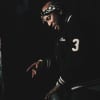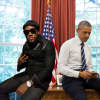The last of our reprinted features from FADER #50, "Atlanta Rap" focuses on the post-Outkast dissemination of The A aesthetic. From crunk to snap to trap and everything else, the city revitalized rap and birthed a new generation of innovators, and we did our best to cover it all first. Click more to read Chris Ryan's essay along with some of our favorite Atlanta rap videos.
Story Chris Ryan
Photography Jonathan Mannion and Jason Nocito
In the cinematography documentary Visions of Light, some master lenscrafter (I think the dude who shot ET) posits that the introduction of sound to motion pictures in the 1920s set the artistic evolution of filmmaking back decades. When the camera was forced to adhere to the limits and needs of microphones, it could no longer go anywhere and do anything. People were listening.
The same thing happens to music scenes and musical communities, especially in hip-hop. The intrusion of outside forces, even those with the best intentions, inevitably derails the natural progress. People are listening.
Even with ink spilled and attention paid, the Bay and Houston never blew the way they were supposed to. Despite their rich histories and bright futures, hyphy and thizz and screw were bottled and sold as the sound of now. When they didn’t redraw any maps overnight, their moment passed.
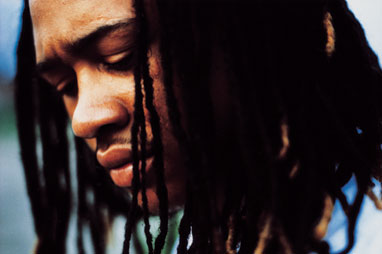
Atlanta, the capital of black America, was the first city to really pull hip-hop’s gaze from New York and Los Angeles and refocus the nation on the South and its sister cities like St Louis and New Orleans. Yet unlike these other cities, Atlanta achieved permanence—taking over with the span of its influence. Over the last seven years, no other place has simultaneously run the charts, the streets, the blogs, the barbershops, the nightclubs, the bedrooms, the boardrooms and the message boards. Like Motown before it, Atlanta, as an idea, is music’s shining city on the hill.
ATL’s genius lies in potluck inclusiveness. It is an all-encompassing, full-service, pop Magic City/Magic Kingdom. It houses both super producers and ProTools amateurs. It’s got prom queens, trappers, girl groups and dance troupes. There are producers-turned-label-heads, DJs-turned-rappers, rappers-turned-hustlers, hustlers-turned-go-gettas. Fundamentally, Atlanta is about multiplicity and self-dependence. Rather than wait for major labels on the coasts to contextualize their southern culture, Atlanta developed a shadow-industry infrastructure that could support artists without the help of the conglomerates. Rather than let A&Rs dictate what constituted a club song, Atlanta created a more democratic—albeit sexualized—way of doing things. If the strippers at the Blue Flame (F42) or Club Blaze felt your track, then you had something. If not, it was back to the lab.
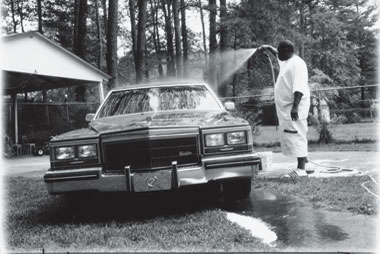
In the process, ATL has fostered some of the decade’s definitive styles—from the energy drink of crunk to the sheen of Jazze Pha’s Pop & B (F22) to the utilitarian minimalism of snap. There’s no one sound that defines the city, not the way handclaps and basslines did for Motown’s Detroit, or echo did for Studio One’s Kingston. For the past 15 years, Atlanta’s reigning sound has been a relay race where the baton is sometimes passed, sometimes ganked and sometimes tossed into the air like the bone in 2001, floating down to Earth in the form of “Do Yo Dance.” You can hear Lil Jon in Toomp (F38) or Collipark in K-Rab, and you can also hear Jazze Pha listening to all of ’em and spitting it back out for happy hour at Applebee’s. Styles come and styles go and the amount of candles on Jermaine Dupri’s birthday cake stays the same, but nobody has ever branded the city the way Dre did LA or Preem did NY. At this point “Atlanta” is as much Mannie Fresh (F34) and Polow da Don (F45) as anyone else. It ain’t where ya from, its where ya studio’s at.
The origins of Atlanta’s rise are difficult to pinpoint, but they probably began with Outkast (F05 and F18). By the time Andre Benjamin and Antwan Patton named their 1996 sophomore album ATLiens, they had already helped build Atlanta into hip-hop’s port of call. Along with their production team, Organzied Noize, and fellow travelers Goodie Mob, Benjamin and Patton formed the Dungeon Family, a southern answer to NYC’s Native Tongues. ATLiens was about stretching beyond the zones—Atlanta’s distinct neighborhoods, determined by which police precinct patrols them—into a universe of zooted funk, as envisioned by forefathers Sly Stone and George Clinton. It connected Atlanta, and hip-hop, to a musical tradition beyond the borders of time. Outkast was earnest and cynical, funny and somber, interstellar and street-level. Nearly all the Atlanta music that has been written since—from novelty tracks to trap house funeral marches—comes from them, a band that was anything to all people.
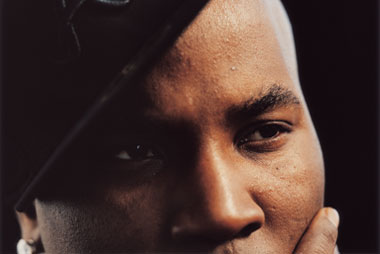
Atlanta’s current rock stars TI and Young Jeezy (F40) follow this duality. Both recognize the powerful results that come from adopting a persona that is half drug dealing superhero/half flawed everyman. In the same way that Outkast walked the line between keeping it real and keeping it cosmic, TI and Jeezy truck in self-mythology with the same deft touch as they do self-awareness. Their depictions of Atlanta drug culture propose that it’s unlike any other place in the world, and at the same time, just like any street corner in America. They are both untouchable and tangible.
When the dark reality of trap music became almost too much handle, as the monolithic beats of Toomp and Shawty Red threatened to block out the sun, Atlanta’s youth turned the chants of their concrete schoolyards with their embrace of snap music. Usually how-to dance tracks strike me as closet fascist propaganda aimed at those who can’t move with the intention of making them think they’re Johnny Gill, when in fact they’re just another brick in the wall doing the Macarena. But snap music is really about not giving a shit whether you learn all the moves, whether you lean with it when you’re supposed to be rocking with it. It’s more or less descended from the intimate club productions of Collipark, but it’s become far more than two creepy dudes talking about grudge fucking in hushed tones: snap strips rap down to its engine and wheels. And when it is on its shit—like Maceo’s (F33) “Nextel Chirp,” a slow-to-boil anthem about walkie-drug-talkie etiquette—snap takes that primary palette and goes Technicolor.
As the music of Atlanta has continued to evolve and devolve and re-evolve into countless firestarters, somehow the city’s story always returns to Outkast. Last year Andre 3000 marked his return to rapping by jumping on a remix to UNK’s “Walk It Out,” which, at the time, was the latest ATL street classic to transform into a national hit. For the hundredth time, as he busted on rappers for the size of their enormous white tees and chastised them to make their mothers proud, Andre’s lyrics served as a challenge to rappers in the city and everywhere else: step your game up.
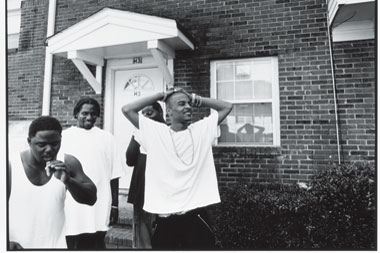
But I really understood the legacy of Atlanta in 2005 at the Knitting Factory in New York during a CMJ showcase for Big Boi’s Purple Ribbon (F32) label. In many ways it was like any other rap show. When it actually started—2:30 AM or something—it was almost a pleasant surprise to a crowd who had already made its peace with the likelihood that Big Boi had found something better to do. And like a lot of rap shows, the sound was spotty, the songs were truncated and the hypemen were plentiful. But unlike any show I’ve ever been to, this one included one blessed 20-minute stretch of Outkast classics presented, rather than performed, by one half of the group. Without Andre 3000 it was like Southernplayalistickaraoke. But all the bullshit ceased when the beat for “Elevators” dropped. Big Boi didn’t sing it, he sang along. He knew what all of us knew—window to the wall, trap to the blog—that this was a folk song. Everybody who has ever breathed tainted air has tried to find a spot off in that light, a light off in that spot…we loved that song. Forever we love Atlanta. We stay listening.
Cool Breeze f. Dungeon Family, "Watch For The Hook"
Goodie Mob, "Cell Therapy"
TI, "What You Know"
Outkast, "Bombs Over Baghdad"
Crime Mob, "Knuck If You Buck"
Young Jeezy, "My Hood"


